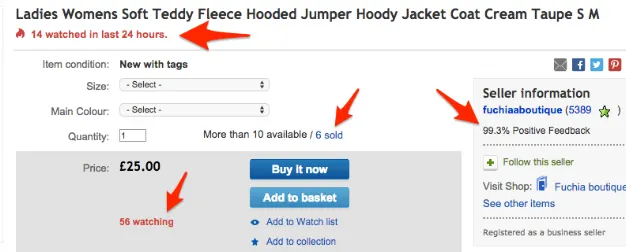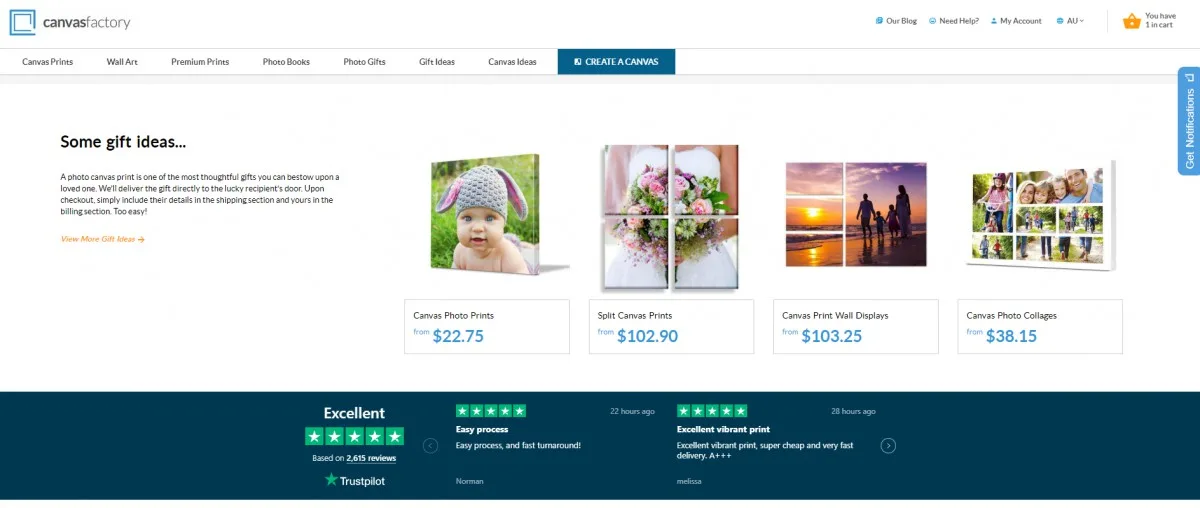
Sure, you’ve heard of social proof a million times — but are you clear on exactly how it works, or the different ways you can use it to step up your eCommerce marketing?
In this introductory guide to social proof, we’ll unpack exactly what it is, why it works, and then we’ll share some insights from Trustpilot partner Best Response Media on why social proof like third party reviews can mean explosive growth for your eCommerce business.
So, what is social proof?
According to Wikipedia, social proof (also known as informational social influence) is a “psychological and social phenomenon referring to people’s reliance on the feedback and actions of others to determine what is right and what is wrong in a given situation.”
Social proof is a concept as old as marketing itself (just think about testimonials on old adverts), but the rise of social media — and perhaps the internet in general — have enhanced the accessibility, and effectiveness of social proof as we know it today.
This old advertisement below is a good example of how social proof was used initially. You can see that testimonials are featured throughout the ad, in hopes of boosting consumers’ confidence earlier in the customer journey, and inspiring those who are unfamiliar with Barbasol to buy the product.

What does social proof look like today?
Any positive comments about you, your business, or even your product function as social proof. These online sentiments are endorsements that this person, company, service, or product is great, and that the overall customer journey has satisfied previous shoppers.
The very presence of social proof makes a business more trustworthy because, by definition, social proof comes from customers — and, with declining trust in traditional advertising, those voices tend to carry more weight than branded messages from companies themselves.
In other words, social proof allows companies to take advantage of external validation and customer advocacy in order to influence potential customers.
A great example of modern social proof are customer reviews like the ones below. These days, it’s pretty common for brands to make customer reviews readily available on their website in order to highlight their customers’ positive experiences at key moments in the shopping journey.
It doesn’t stop there — reviews can also be added to ad campaigns, email signatures, product pages, and even the checkout page of your store.
At the end of the day, social proof is effective because it empowers real customers to tell your story. And when your story is that you’ve made your customers happy and satisfied, that’s pretty compelling.
Today, companies have a variety of options to choose from when it comes to integrating social proof into their customer journey.
These include, but are not limited to:
Social likes and shares
Long form testimonials
Customer reviews
Trust signals (e.g. the Trustpilot logo and star rating, or even review snippets from product reviews, or Google Seller Ratings from your paid ads in SERPs)
Case studies
Celebrity or influencer endorsements
Earned media
Now let’s get to the important part — why is social proof so important for eCommerce businesses?
It makes for more effective marketing.
Why does social proof work so well for eCommerce marketing?
We believe (and have the data to back it up) that social proof is one of today’s best marketing tools in order to boost consumers’ confidence and build trust earlier in the funnel.
That said, the degree to which social proof affects customers can be a result of the number of trust signals or the number of people promoting the business or product.
When it comes to trust signals, the more, the merrier.

eBay page with plenty of social proof indicators
The above screenshot shows the extent to which eBay incorporates social proof on all their product pages:
The number of views this product received over the last 24 hours
How many orders of that item has been sold so far
How many people are looking at the product on the page
The number of the seller’s customer reviews
The rating of the seller, based on customer reviews
But why go to the trouble of highlighting so many different flavours of social proof?
It’s safe to say that growing competition and lack of trust in advertising are profoundly affecting the customer journey and the decision-making process.
That presents online retailers with a serious marketing challenge.
Shoppers can quickly compare brands by cost, quality, and customer experience in just a couple of clicks, making it harder for retailers to stand out from the online competition. Traditional marketing maneuvers just don’t pack the same punch.
On the other hand, social proof allows businesses to incorporate ‘the voice of the customer’ into their marketing messages — which could very well be the best way to cut through the noise today.
By placing social proof at every stage of the customer journey — whether it’s testimonials, positive reviews, likes or shares — brands can build trust with customers and encourage new ones to buy from them with confidence.
How do reviews factor into social proof?
Today, 92% of consumers read online reviews, and 80% of shoppers trust reviews as much as personal recommendations.
This statement alone should be enough for companies to put more effort into focusing on reviews as a primary channel for social proof. Social proof and customer feedback are becoming a necessity for any eCommerce business looking to stay relevant and trustworthy in an ever-evolving shopping journey.
Most people will read up to ten reviews before making a purchase decision, and 54% of respondents will visit a website after reading positive reviews. Recommendation and review engines rely on other people’s feedback to help businesses drive sales and refer people to brands they will like based on the buying decisions of people like them.

That said, in the world of social proof, not all reviews carry the same weight.
Reviews on third-party platforms = stronger social proof
Third-party review platforms like Trustpilot are more recognised and trusted by consumers because shoppers know that these reviews haven’t been edited, curated, or even deleted by the retailer in question.
And with the addition of Trustpilot’s new transparent flagging feature, online shoppers are able to peel back the curtain to see how many reviews the company has flagged. This provides even more credibility to the platform, because it ensures that companies on Trustpilot aren’t abusing the review flagging feature.
We can’t stress enough the value of collecting social proof on an open third-party platform, rather than native solutions, which tend to be less open and transparent.
Trustpilot CEO Peter Mühlmann said it best:
“Using a closed platform is like asking your own mother if you’re handsome.”
We’ll leave it at that.
Next up, we’ll take a look at some insights from David Wain-Heapy, director at Best Response Media, on why social proof is particularly relevant for eCommerce businesses.
So, why is social proof marketing essential for growing your eCommerce business?
This section of our Social Proof 101 guide is contributed by David Wain-Heapy, Director at Best Response Media, where he provides innovative Magento eCommerce and digital marketing solutions from their offices in Central London.
Though social proof is relevant to all industries, it’s perennially relevant for eCommerce. As eCommerce grows increasingly competitive, the pressure on website managers to attract and hold onto customers is only intensifying.
It’s well established that online shoppers are becoming savvier about online purchases, and that they look at more than just price when they’re deciding if they want to buy.
These days, they’re also looking for indicators of an awesome customer experience, and oftentimes that’s best reflected through social proof like customer reviews.
There are many components of online customer experience that a business can focus on to differentiate themselves from the competition. Doing so often results in glowing social proof for a company, and ultimately a great reputation.
For example, offering excellent delivery options not only makes the buying decision easier, but increases the odds that satisfied customers will rave about their experience with your online store in the form of a review.
Offering a stellar customer experience tends to lead directly to positive social proof, which in turn leads to new customers — and even increased customer loyalty.
Reviews are at the core of eCommerce social proof
As we touched on at the beginning of the guide, our methods of displaying social proof are constantly evolving along with the rest of the industry, but the original concept goes way back.
To take a deeper dive into the origins of social proof — in 1984, Dr. Robert B. Cialdini wrote a book called Influence: The Psychology of Persuasion that has become a cult classic in the marketing field.
Cialdini covered the topic of social proof, which he put forth as the reason people like safety in numbers when it comes to buying. If they can see that a product is being purchased and trusted (or not) by others, this helps them make a confident purchasing decision.
With reviews becoming the norm for eCommerce, it’s not the best idea to differentiate yourself by your lack of review strategy.
Online stores of all shapes and sizes can easily get on board because there are plenty of ways they can go about collecting them on third-party platforms — also known as building a review acquisition strategy.
But why aren't native reviews on eCommerce platforms enough?
As we have seen throughout the guide, there’s a lot of evidence that confirms the importance of reviews for eCommerce conversion rates.
It makes sense that major ecommerce platforms like Magento offer native review functionality as a built-in option. This is often an appealing option to store owners as they have full control over the review process.
However, Cialdini’s social proof model only works if consumers are able to trust the source of the social proof, which means that third-party review platforms are the way to go if building trust with your customers is your goal.
The problem with native reviews is that they’ve been traditionally abused by unscrupulous business owners who have edited bad reviews, removed them altogether, or even created fake reviews.
Today consumers are aware of this phenomenon and can usually detect from an arm’s length whether a review is authentic. In fact, a mix of review sentiments can actually be a good thing — even seeing a negative review (especially one that your company graciously responded to) helps your online store come off as helpful, open, and transparent.
The power of association... and trust signals
If you’re a new eCommerce brand, a trustworthy first impression is even more critical. But how can you build that up?
It’s not as hard as it sounds, and it can be done by associating your brand with trusted review platforms, which are far more recognised by consumers than any native eCommerce review solution.
Why is that? Trust signals like a distinctive logo and recognisable branding on each review instantly boosts their credibility.
Because online shoppers know these third-party reviews can’t be gamed by the seller, they present themselves in a much more authentic way than reviews collected through native solutions that offer minimal transparency.
Final thoughts: becoming a better business with learnings from social proof
Last but certainly not least, any learnings you glean from what’s said via social proof can help your business go from your standard online seller to a trusted, and even beloved, eCommerce brand.
When eCommerce brands implement social proof strategies, particularly in the form of reviews, they’re inclined to raise the standards of their customer experience to ensure they don’t receive any negative feedback related to things within their control.
But they also have an opportunity to open a direct line of communication with their customers, and tap into any valuable consumer insights being shared via reviews. This benefits both the consumer and the business, as the consumer receives a better experience and future consumers will leave more positive reviews.
There are still many online stores that are harming their conversion rate by only using native review solutions or worse — not collecting reviews at all. This opens an opportunity for those online retailers willing to invest in a third-party review platform.
And if any online stores out there are nervous about handing a megaphone over to their customers, they ought to ask themselves why.
If you’re delivering an excellent customer experience and keeping your customers happy then there should be nothing to worry about.
Want to make reviews your brand's most effective form of social proof? Create a free Trustpilot account today!




